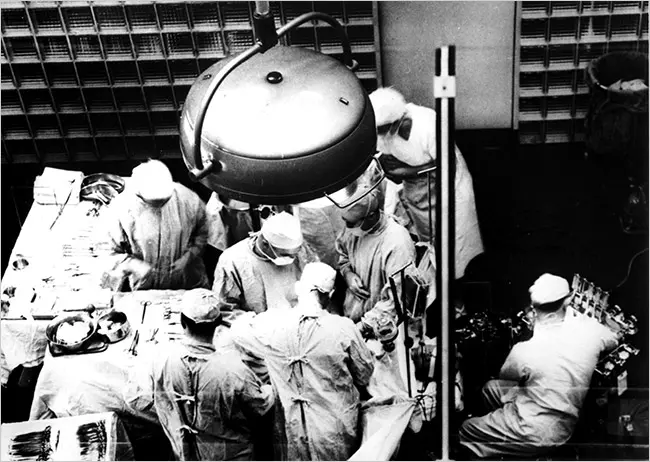+90 533 813 89 77
info@bookingforhealth.com

How long does a Kidney Transplant last?
This is an informative article on [How long does a Kidney Transplant last?]. In this article, we will try to give short answers to the following questions.
How long does kidney transplant surgery take?
The duration of a kidney transplant surgery usually falls within the range of 3 to 4 hours. The precise length can fluctuate due to variables like the chosen surgical technique, procedure intricacy, surgeon expertise, and the patient’s unique health condition. It’s important to note that both the donor and recipient surgeries collectively contribute to the overall time.
How long does a person with a kidney transplant live?
The longevity of a kidney transplant can vary from patient to patient, and it depends on several factors. A kidney transplant from a living donor typically lasts 15-20 years, while one from a deceased donor usually lasts 10-15 years on average. However, these durations can vary from person to person. However, some kidney transplants can last much longer, even for a lifetime, with proper care and management.
Several factors influence the lifespan of a transplanted kidney, including:
- Immunosuppressive Medications: Transplant recipients need to take immunosuppressive medications for the rest of their lives to prevent rejection of the transplanted kidney. The effectiveness of these medications and the patient’s adherence to the prescribed regimen play a significant role in the long-term success of the transplant.
- Donor Source: Kidneys from living donors tend to have a longer lifespan compared to those from deceased donors. Living donor kidneys often function well immediately after transplantation and may experience less damage during the retrieval and preservation process.
- Recipient’s Health: The overall health of the transplant recipient can impact the longevity of the kidney. Conditions like diabetes, high blood pressure, and other chronic illnesses can affect the kidney’s function over time.
- Rejection: Episodes of acute rejection, where the recipient’s immune system attacks the transplanted kidney, can harm the kidney and reduce its lifespan. Timely detection and treatment of rejection episodes are crucial.
- Infections: Infections, particularly those that affect the urinary tract, can also affect the health of the transplanted kidney.
- Age: The age of both the donor and recipient can influence the longevity of the transplanted kidney. Younger donors and recipients often experience better outcomes.
- Surgical Factors: The surgical procedure itself, including the skill of the transplant surgeon and the quality of the preservation and transportation of the donor kidney, can impact the success of the transplant.
- Lifestyle Factors: Lifestyle choices, such as smoking, diet, and exercise, can influence the health of the transplanted kidney and the overall success of the transplant.
What disqualifies you from getting a Kidney Transplant?
Cancer, serious heart problems, active infections, substance abuse, inadequate social support, serious psychological problems, or non-adherence to post-operative care are common reasons for not being eligible for a kidney transplant. However, the exact situation is determined by the evaluation of the patient.
How many Kidney Transplants can a person have?
A person with chronic kidney disease may require multiple kidney transplants to live longer. They can receive a kidney from a deceased donor, and each transplant provides a chance for them to extend their life and improve their kidney function.
How long can you live with a Kidney Transplant?
With proper medical care and adherence to prescribed medications, many kidney transplant recipients can expect their transplants to function well for 15 to 20 years or even longer. Some individuals have successfully maintained functioning transplants for several decades.
When was the first Kidney Transplant?
The first successful kidney transplant took place on December 23, 1954. This occurred at the Peter Bent Brigham Hospital in Boston, Massachusetts, and was performed by Dr. Joseph Murray and his team. The transplant involved a kidney being transplanted from one identical twin to another, significantly reducing the risk of rejection.

How to get on Kidney Transplant list?
1. Contact a transplant center at a hospital that performs kidney transplants.
2. Undergo the necessary medical evaluations.
3. When deemed a suitable candidate, the transplant center will add you to the kidney transplant list.
Can you drink alcohol after a Kidney Transplant?
Certainly, after a kidney transplant, some patients may be able to consume alcohol in moderation, but it’s crucial to do so under the guidance and approval of your transplant team. They can provide specific recommendations based on your individual health status and medications to ensure the safety of your new kidney.
How long do you need a caregiver after Kidney Transplant?
The length of care after a kidney transplant can vary depending on the individual’s specific circumstances and speed of recovery. The duration of care can vary greatly from person to person and can range from a few weeks to several months, often requiring intensive care after surgery. It is important to follow the recommendations of doctors and health professionals following the healing process.

Can dogs get Kidney Transplants?
Yes, dogs can undergo kidney transplants. This is a complex surgical procedure used to treat severe kidney disease or failure in dogs. However, it’s not as common as in humans due to various logistical and ethical considerations. Finding a suitable donor dog and the cost can be challenging. Veterinary specialists evaluate the eligibility of both the recipient and donor dogs before proceeding with the transplant.

Does Blue Cross Blue Shield cover Kidney Transplant?
Blue Cross Blue Shield (BCBS) insurance plans usually cover kidney transplants, but the degree of coverage can vary by plan. See details of your BCBS plan or contact directly for exact information.
Does Medicaid cover Kidney Transplants?
Yes, Medicaid covers kidney transplants. Medicaid helps with the cost of kidney transplants, including blood tests, post-transplant care, and support for kidney donors. Typically, it covers expenses like blood tests, post-transplant care, and support for kidney donors starting a week after surgery and continues during the recovery period, which includes days after surgery.
Risk Factors
Immune-Suppressing Drugs:
These drugs can raise infection risks. Ensure regular vaccinations and monitor for signs of infection.
Organ Rejection:
To reduce rejection risk, adhere to medication schedules and attend regular doctor check-ups.
Cardiovascular Issues:
Adopt a healthy lifestyle, exercise regularly, and manage your blood pressure.



